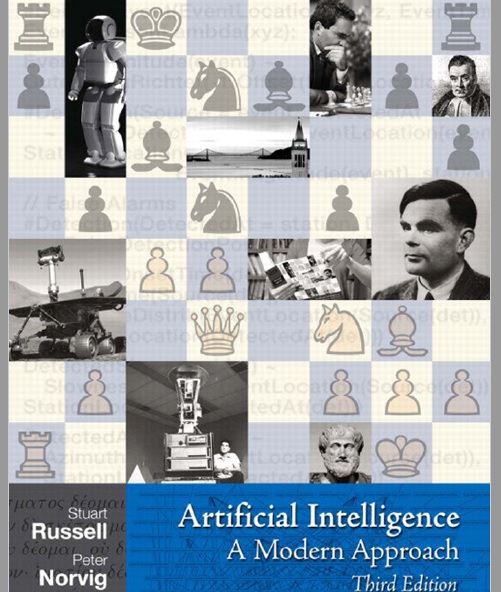CISC 7410X Artificial Intelligence I
Theodore Raphan
Room 130 NE
Spring 2020
Office: TBD
Office Hours: TBD
1. E-mail related to this course should be sent only to:
2. E-mail sent to any other address will be lost and you will
not receive a response.
IMPORTANT ADMINISTRATIVE INFORMATION
1. Establish a DropBox Account and Link it to my address.
This way, when you place assignments in your Dropbox folder , I will be able to see them.
NOTEWORTHY DATES:
COURSE DESCRIPTION
This
course
will introduce students to the mathematical models,
computational methods, and experimental basis for learning
processes in biological systems (animals and humans) and
how modeling these systems has impacted computational
algorithms. The topics that will be covered in this course
will include elements of statistical decision theory,
adaptive control, machine learning approaches to pattern
classification, and neural nets, and will provide a formal
structure for solving problems in behavioral,
physiological and representation-mediated behavior.

Artificial Intelligence: A Modern Approach
Third Edition
Russell & Norvig
There will be a Midterm and Final, Homework Problems, and programming Projects
The weighting will be 30% and 50%, the higher weight will be assigned to the higher grade, and 20% for programming projects.
SYLLABUS
| Week |
Book Sections | Topic |
Exercises/Readings |
| 1 |
Chapter 1 Chapter 2 |
Representation and Intelligent Agents |
Read Chapter 1 & 2: 1.1, 1.4, 1.10. 1.11, 1.13 2.1, 2.2, 2.3 |
| 2 |
Learn Python |
Python |
Read on Rudiments of Python |
| 3 |
Chapter 3 |
Problem Solving Agents |
Read Chapter 3; Vacuum World, The 8 Puzzle, 8-Queens problem, Uniform Search Strategies, Breadth First, Depth First, Search with Partial Information |
| 4 |
Chapter 4 |
Greedy Best-First Search, A* Search,
Heuristic Functions, Hill Climbing Search, Simulated
Annealing, Local Beam Search, Stochastic Bem Search,
Genetic Algorithms |
Read Chapter 4; 4.1, 4.3, 4.5, 4.7 |
| 5 |
Chapter 6 |
Adversarial Search (Game Theory,
Alpha Beta Pruning |
Read Chapter 6; |
| 6 |
Logical Agent | ||
| Midterm |
|||
| 7 |
Knowledge Representaion |
Read Chapter 8, 9 |
|
| 9 |
Uncertainty, Uncertainty &
Rational Decisions, Decisions, Using Axioms, of
Probability, Baye's Theorem, Probabalistic Reasoning |
Chapter 13, 14 |
|
| 10 |
|
Elements of Machine Learning
Learning, Learning From Observation, Neural Nets |
Read Chapter 13, 14 |
| 11 |
|
Reinforcement Learning |
Chapter 18, 20.5 |
| 12 |
|
||
| 13 |
Review |
||
| 14 |
Review |
||
| 15 |
Final |
Final |
Will Cover Everything |
COURSE POLICIES Student Conduct
Any acts of disruption that go beyond the normal rights of
students to question and discuss with instructors the
educational process relative to subject content will not be
tolerated, in accordance with the Academic Code of Conduct
described in the Student Handbook
Cellular telephones, pagers, CD players, radios, and similar devices are prohibited in the classroom. Calculators and computers are prohibited during examinations, unless specified.
Examination Policy
A midterm and final examination will be given in class. Please schedule your other activities in advance. No make-up exams will be allowed without prior arrangements being made.
To prepare for examinations, read the chapters, go over the
notes you take in class, and do the assignments. 100 % of
the questions are taken directly from the reading material
and what is covered in class.
Students will not be given an incomplete grade in the course without sound reason and documented evidence. In any case, for a student to receive an incomplete, he or she must be passing and must have completed a significant portion of the course.
Academic Integrity Policy
Students are expected to uphold the school’s standard of conduct relating to academic honesty. Students assume full responsibility for the content and integrity of the academic work they submit. The guiding principle of academic integrity shall be that a student's submitted work, examinations, reports, and projects must be that of the student's own work. Students shall be guilty of violating the college’s policy if they:
- Represent the work of others as their own.
- Use or obtain unauthorized assistance in any academic work.
- Give unauthorized assistance to other students.
- Modify, without instructor approval, an examination, paper, record, or report for the purpose of obtaining additional credit.
- Misrepresent the content of submitted work.
Any student violating the colleges academic integrity policy is subject to receive a failing grade for the course and will be reported to the Office of Student Affairs. If a student is unclear about whether a particular situation may constitute violation, the student should meet with the instructor to discuss the situation.
For this class, it is permissible to assist classmates in
general discussions of computing techniques. General advice
and interaction are encouraged. Each person, however, must
develop his or her own solutions to the assigned projects,
assignments, and tasks. In other words, students may not
"work together" on graded assignments. Such collaboration
constitutes cheating. A student may not use or copy (by any
means) another's work (or portions of it) and represent it
as his/her own. If you need help on an assignment, contact
your instructor, not other classmates
In compliance with the Americans with Disabilities Act
(ADA), all qualified students enrolled in this course are
entitled to “reasonable accommodations.” Please notify the
instructor during the first week of class of any
accommodations needed for the course
- COME TO CLASS
- Take good notes.
- Ask questions.
- Do the assignments on time.
Students should prepare to spend at least 3 hours weekly on this material. If you do not have enough time, do not take the course!
- Contact me if you are confused or fall behind, for whatever reason. Come to my office hours or email me.
- I get MANY email messages every day, so please keep your message short and to the point. If your message is too long , I probably will not read it.
- Note that email messages where the sender's name seems fake (e.g., "Mickey Mouse") or the subject is blank or undecipherable, may be automatically filtered out in attempt to eliminate spam and other offensive messages.
- If I haven't replied to you, please be patient. Sending me multiple copies of the same message (or multiple messages that say the same thing) only clogs my inbox, which takes me longer to get to your message.
- PLEASE SIGN YOUR EMAIL and mail it to:
mailto:raphan-7410x@sci.brooklyn.cuny.edu
This will insure that you are in the class and should be responded to. If you mail to any other address, it will probably not be answered as the system will assume it is SPAM.

